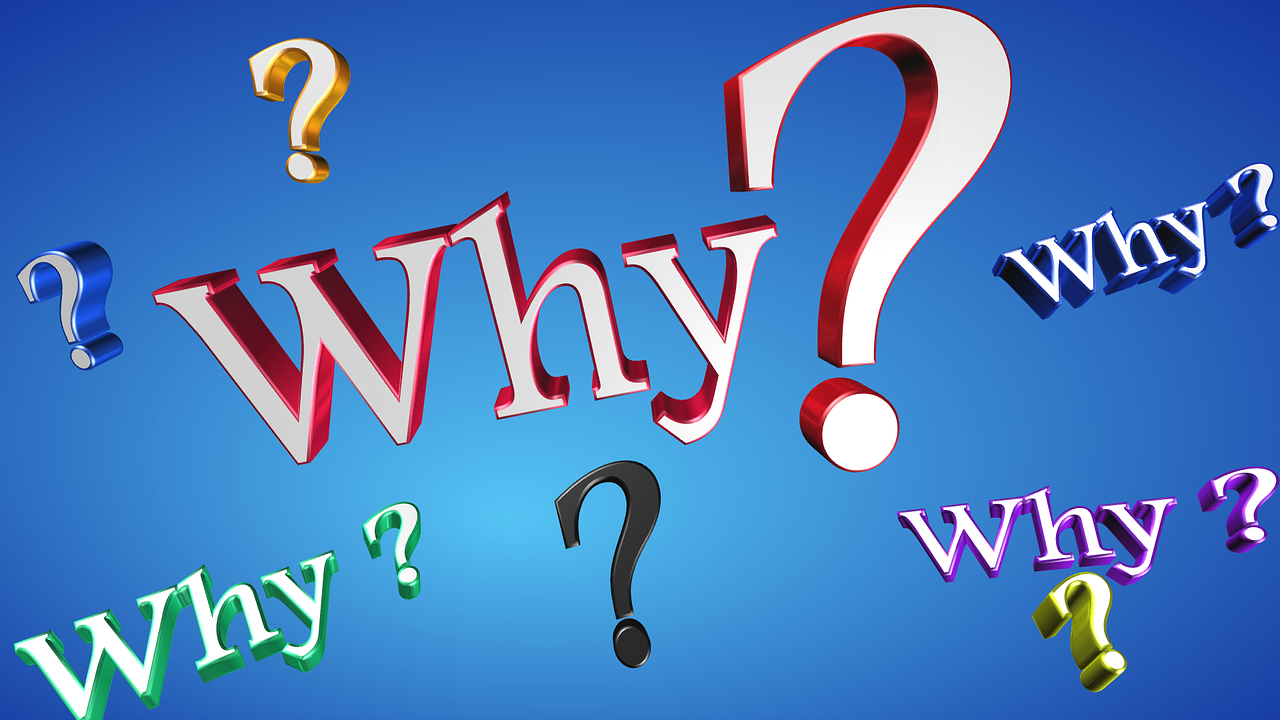Science Trivia Challenge: Test Your Knowledge with Expert-Level Questions
Science trivia challenge: test your knowledge with expert level questions
Science trivia questions offer a fun and engaging way to test your knowledge across various scientific disciplines. Whether you’re will prepare for a science bowl competition, will look to will challenge yourself, or merely will enjoy will learn fascinating facts about our world, this comprehensive collection of science questions and answers will satisfy your curiosity and will expand your understanding.
Physics trivia questions
Fundamental forces and particles
Q: what are the four fundamental forces in physics? A: the four fundamental forces are gravity, electromagnetism, strong nuclear force, and weak nuclear force.
Q: which subatomic particle was predicted bPaul Diracac and discover by carAndersonon? A: the positron (or antielectron ) the antimatter counterpart of the electron.
Q: what principle state that you can not simultaneously know both the position and momentum of a particle with perfect accuracy? A: Heisenberg’s uncertainty principle.
Laws of motion and energy
Q: what’s the is unit of force? A: the newton (n )
Q: which law of thermodynamics state that energy can not be created or destroy, sole transform? A: the first law of thermodynamics (law of conservation of energy )
Q: what phenomenon describe the change in frequency of a wave in relation to an observer move relative to the source of the wave? A: the Doppler effect.
Quantum physics and relativity
Q: what’s the name of Einstein’s equation that express the equivalence of mass and energy? A: e = MC² (energy equal mass times the speed of light square )
Q: what’s the term for the theoretical temperature at which all molecular motion would stop? A: absolute zero ( 273.15 ° c or 0 kelvin )
Q: what quantum physics concept describe the phenomenon where particles can be entangled and affect each other instantly across any distance? A: quantum entanglement.
Chemistry trivia questions
Elements and the periodic table
Q: who is credit with create the first version of the periodic table? A: Dmitri Mendeleev.
Q: which element have the highest electronegativity? A: fluorine.
Q: what’s the near abundant element in the earth’s crust? A: oxygen.
Chemical reactions and bonds
Q: what type of chemical reaction release heat to its surroundings? A: exothermic reaction.
Q: what’s the pH of a neutral solution at standard temperature? A: 7.
Q: what bond forms when electrons are share between atoms? A: covalent bond.
Organic chemistry
Q: what functional group is characterized by a carbon oxygen double bond with the carbon besides bond to a hydrogen or carbon? A: aldehyde.
Q: what’s the simplest amino acid? A: glycine.
Q: what’s the process call when large molecules break down into smaller ones? A: hydrolysis.
Biology trivia questions
Cell biology
Q: what cell organelle contain enzymes for break down cellular waste? A: lysosome.
Q: what’s the name of the process by which cells engulf material use their cell membrane? A: endocytosis.
Q: what’s the powerhouse of the cell? A: mitochondria.
Genetics and DNA
Q: who discover the double helix structure of DNA? A: jams wWatsonand fFranciscrick, with crucial xx-raycrystallography data from rRosalindfranklin and mMauricewWilkins
Q: what are the four nitrogenous bases find in DNA? A: adenine, thymine, guanine, and cytosine.
Q: what term describe a trait that’s express entirely when two recessive alleles are present? A: recessive trait.
Ecology and evolution
Q: what’s the term for the role an organism play in its ecosystem? A: niche.
Q: who propose the theory of natural selection? A: Charles Darwin.
Q: what’s the term for organisms that can produce their own food use light or chemical energy? A: autotrophs.
Astronomy and space science trivia
Solar system
Q: which planet have the great red spot? A: Jupiter.
Q: what’s the largest moon in our solar system? A: Ganymede (a moon of jJupiter)
Q: what cause the phases of the moon as see from earth? A: the change relative positions of the earth, moon, and sun, which alter the portion of the illuminated side of the moon visible from earth.
Stars and galaxies
Q: what’s the name of our galaxy? A: the Milky Way.
Q: what process fuel stars, allow them to produce energy? A: nuclear fusion.
Q: what’s a black hole? A: a region of spacetime where gravity is thence strong that nothing, include light, can escape from it.
Cosmology
Q: what theory describe the origin of the universe? A: the Big Bang Theory.
Q: what make up roughly 68 % of the universe? A: dark energy.
Q: what’s the term for the boundary around a black hole beyond which nothing can escape? A: event horizon.
Earth science trivia questions
Geology
Q: what’s the near abundant gas in earth’s atmosphere? A: nitrogen (roughly 78 % )
Q: what are the main layers of the earth from the surface to the center? A: crust, mantle, outer core, and inner core.
Q: what theory explain the movement of continents over time? A: plate tectonics.
Meteorology
Q: what instrument measure atmospheric pressure? A: barometer.

Source: docsity.com
Q: what’s the name for a rotate column of air that touch both the ground and a cloud? A: tornado.
Q: what cause the earth’s seasons? A: the tilt of earth’s axis as it orbit the sun.
Oceanography
Q: what’s the deepest point in earth’s oceans? A: the challenger deep in the Mariana trench.
Q: what cause ocean tides? A: the gravitational pull of the moon and, to a lesser extent, the sun.
Q: what’s the name of the circulate pattern of ocean currents drive by wind and earth’s rotation? A: gyres.
Science bowl competition questions
Science bowl competitions feature rapid fire question formats that test deep knowledge across scientific disciplines. Hither are some examples that mimic the style and difficulty level of actual science bowl questions:
Multiple choice science bowl questions
Q: multiple choice: which of the following is not considered a greenhouse gas W) carbon dioxide X) methane Y) nitrogen Z) water vapor A: y) nitrogen
Q: multiple choice: the Krebs cycle occurs in which part of the cell? W) nucleus X) mitochondria Y) endoplasmic reticulum Z) gGolgiapparatus A: x) mitochondria
Q: multiple choice: which scientist is credit with develop the first polio vaccine? W) jJonas Salk X) lLouis Pasteur Y) aAlexander Fleming Z) eEdwardjJenner A: w) jJonas Salk
Short answer science bowl questions
Q: what’s the term for a substance that increase the rate of a chemical reaction without being consumed in the reaction? A: catalyst
Q: what’s the name of the process by which plants convert light energy into chemical energy? A: photosynthesis
Q: in human anatomy, what’s the largest organ of the body? A: skin

Source: mantelligence.com
Calculation base science bowl questions
Q: calculate the force need to accelerate a 2 kilogram object at 5 meters per second square. A: 10 newtons (f = ma = 2 kg × 5 m / s² = 10 n )
Q: if a radioactive substance have a half life of 10 days, what fraction of the original sample will remain after 30 days? A: 1/8 (after 3 half lives, the fraction remain is ((/2)³ = 1/8 ))
Q: a circuit have a resistance of 20 ohms and a current of 3 amperes flow through it. What’s the voltage across the circuit? A: 60 volts (v = iit= 3 a × 20 ω = 60 v )
Advanced science trivia for competitions
Interdisciplinary science questions
Q: what branch of science combine biology and chemistry to study the chemical processes within live organisms? A: biochemistry.
Q: what field apply physical principles to biological systems and problems? A: biophysics.
Q: what discipline use computer algorithms to analyze biological data and solve biological problems? A: bioinformatics.
History of science questions
Q: who is known as the father of modern genetics? A: Gregor Mendel.
Q: what ancient Greek philosopher propose that all matter was make up of indivisible units call atoms? A: Democritus.
Q: who publish the book” on the origin of species ” ntroduce the theory of evolution by natural selection? A: Charles Darwin.
Nobel Prize science questions
Q: for what discovery did Marie Curie win her first Nobel Prize? A: for her research on radioactivity (share with pPierre Curieand hHenri Becquerel)
Q: what discovery earn Albert Einstein the Nobel Prize in physics? A: the photoelectric effect (not for his theory of relativity, as many assume )
Q: who win the Nobel Prize for discover the structure of DNA? A: jams wWatson fFranciscrick, and mMauricewWilkins((oRosalindranklin, whose work was crucial to the discovery, had die before the prize was award ))
Tips for science bowl and trivia competitions
Preparation strategies
Effective preparation is key to success in science competitions. Consider these strategies:
Create a study schedule: Divide your study time across different scientific disciplines, allocate more time to challenging areas.
Use flashcards: Create flashcards for formulas, definitions, and key concepts for quick review.
Form study groups: Collaborate with peers to share knowledge and quiz each other.
Practice with timers: Science bowl questions require quick thinking, so practice answer questions under time pressure.
Competition day tactics
On competition day, these tactics can help maximize your performance:
Listen cautiously: Pay close attention to the entire question before answer.
Buzz in strategically: In buzzer formats, find the balance between buzz in rapidly and wait to hear enough of the question.
Manage stress: Take deep breaths and stay focused, flush after incorrect answers.
Communicate clear: In team competitions, ensure your answers are intelligibly articulated.
Resources for further study
To deepen your science knowledge, consider these valuable resources:
Official science bowl materials: The department of energy provides sample questions and resources for science bowl participants.
Science textbooks: College level textbooks offer comprehensive coverage of scientific concepts.
Online platforms: Websites like khan academy, Coursera, and MIT open courseware offer free science courses.
Scientific journals: Read publications like nature, science, and scientific American can help you stay current with scientific developments.
The benefits of science trivia and competitions
Engage with science trivia and participate in competitions offer numerous benefits beyond hardly win:
Deeper understanding: Prepare for competitions require understand concepts exhaustively instead than memorize facts.
Critical thinking: Science questions frequently require apply knowledge to new situations, enhance problem solve skills.
Team collaboration: Team base competitions develop communication and collaboration skills.
Career exploration: Exposure to various scientific disciplines help students discover areas of interest for potential careers.
Confidence building: Successfully answer challenging questions build confidence in academic abilities.
Conclusion
Science trivia questions and science bowl competitions offer engage ways to explore the fascinating world of science. Whether you’re a student prepare for academic competitions, a teacher look for educational resources, or only a science enthusiast, these questions provide both challenge and enlightenment.
The beauty of science lie in its endless capacity to inspire curiosity. Each question answer frequently leads to new questions, continue the cycle of discovery that drive scientific progress. By engage with science trivia, you’reparticipatede in a tradition of inquiry that hapropelledel human understanding advancing for centuries.
Sol challenge yourself with these questions, expand your knowledge, and perchance about significantly, maintain the sense of wonder that make science such a rewarding field to explore. The universe is fill with mysteries wait to be solved, and each trivia question you answer bring you one step secretive to understand our remarkable world.



